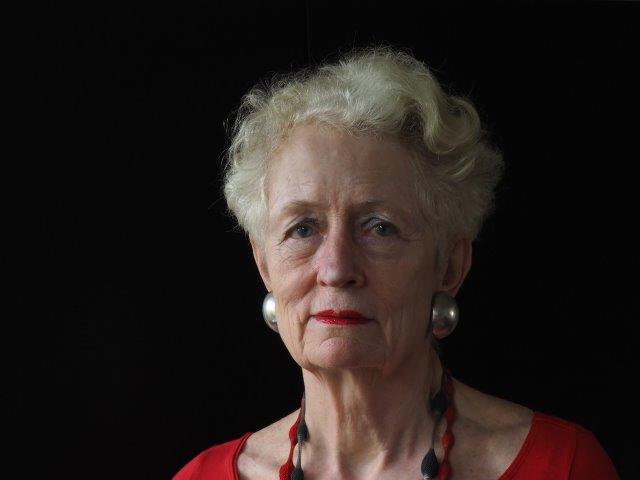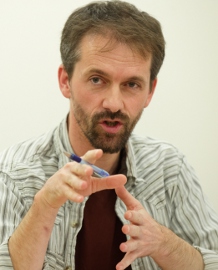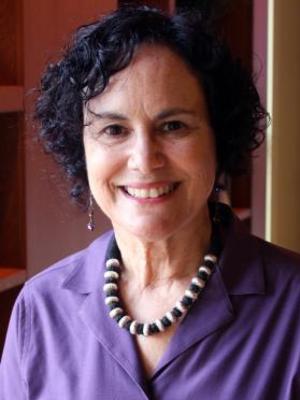SINS brings together different ways of working with narratives. This difference is reflected in the traditions, methods and choice of empirical data represented by the staff of lectures with some originating in literary narratology, some in linguistic, psychological and sociological analysis and others in transmedial narrative study.
Mieke Bal is a cultural theorist, critic, video artist and occasional curator. She works on gender, migratory culture, psychoanalysis, and the critique of capitalism. Her 38 books include a trilogy on political art: Endless Andness (on abstraction), Thinking in Film (on video installation), both 2013, Of What One Cannot Speak (on sculpture, 2010). Her early work comes together in A Mieke Bal Reader (2006). In 2016 appeared In Medias Res: Inside Nalini Malani’s Shadow Plays (Hatje Cantz), and in Spanish, Tiempos trastornados on the politics of visuality (AKAL). Her video project Madame B, with Michelle Williams Gamaker, is widely exhibited, in 2017 in Museum Aboa Vetus & Ars Nova in Turku, and combined with paintings by Munch in the Munch Museum in Oslo. Her most recent film is Reasonable Doubt, on René Descartes and Queen Kristina (2016). The installation of that project has been shown in Kraków, and in 2017 in Amsterdam and Warsaw.

Dr. Richard Walsh is the Director of the "Interdisciplinary Centre for Narrative Studies" and the Director of "Fictionality Research Group" at University of York and the leader of the "Narrative and Complex Systems group" (NarCS). He has published on innovative literature (Novel Arguments: Reading Innovative American Fiction (1995); the co-edited Narratology and Ideology: Negotiating Context, Form and Theory in Postcolonial Narratives (2018)) and on the notion of fictionality within the context of narrative theory. Much of his work in this field has retained a literary focus, while articulating a fundamental critique of some basic concepts and assumptions in narratology: the narrator, story and discourse, mimesis, voice, emotional involvement, narrative creativity and fictionality itself (The Rhetoric of Fictionality (2007)). The study of narrative inherently transcends media and disciplinary boundaries, though, and his research has extended to film, graphic narrative, interactive media and music. More fundamentally, he is interested in the scope and (especially) the limits of narrative as a mode of cognition, and in particular the problematic relation between narrative and complex systems.

Amy Shuman is Professor in the English department at Ohio State University. She specializes in folklore, narrative, and critical theory. She is author of books and articles on conversational narrative, literacy, political asylum, disability, food customs, feminist theory and critical theory. Shuman is a Guggenheim Fellow, the recipient of the 2007 College of Humanities Exemplary Faculty Award, the recipient of the 2014 Distinguished Service Award, and the recipient of the 2015 Distinguished Scholar Award. She served as Director of the Center for Folklore Studies (1995-2005) and also served as Director of Disability Studies (1995-2005). She is currently Director of the Diversity and Identity Studies Collective and is a Fellow of the Mershon Center for International Security. Shuman is author of Storytelling Rights: The Uses of Oral and Written Texts by Urban Adolescents; Other People's Stories: Entitlement Claims and the Critique of Empathy; and (with Carol Bohmer) Rejecting Refugees: Political Asylum in the 21st Century.

Brian Schiff is Chair and Professor in the Department of Psychology and Director of the George and Irina Schaeffer Center for the Study of Genocide, Human Rights and Conflict Prevention. His research is driven by a fascination of the problems of narrative and self, culture and human development, personhood in place and time and the person's connection to collective memory. Schiff's research uses life story interviews in order to study the social and cultural dynamics of identity formation. He has written about the life stories of Holocaust survivors, Arab citizens in Israel, mixed race youth in the US, Muslim-Jewish couples in France and older adults. Among his publications are A New Narrative for Psychology (2017) and the co-edited Life and Narrative: The Risks and Responsibilities of Storying Experience (2017) and Situating Qualitative Methods in Psychological Science (2018). He is also editor of a special issue of New Directions for Child and Adolescent Development (2014).
